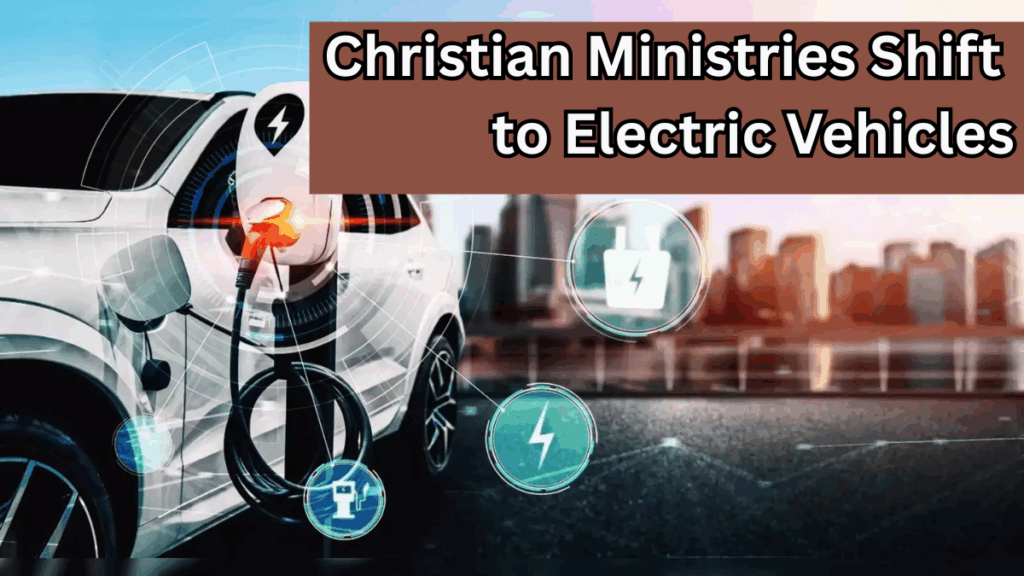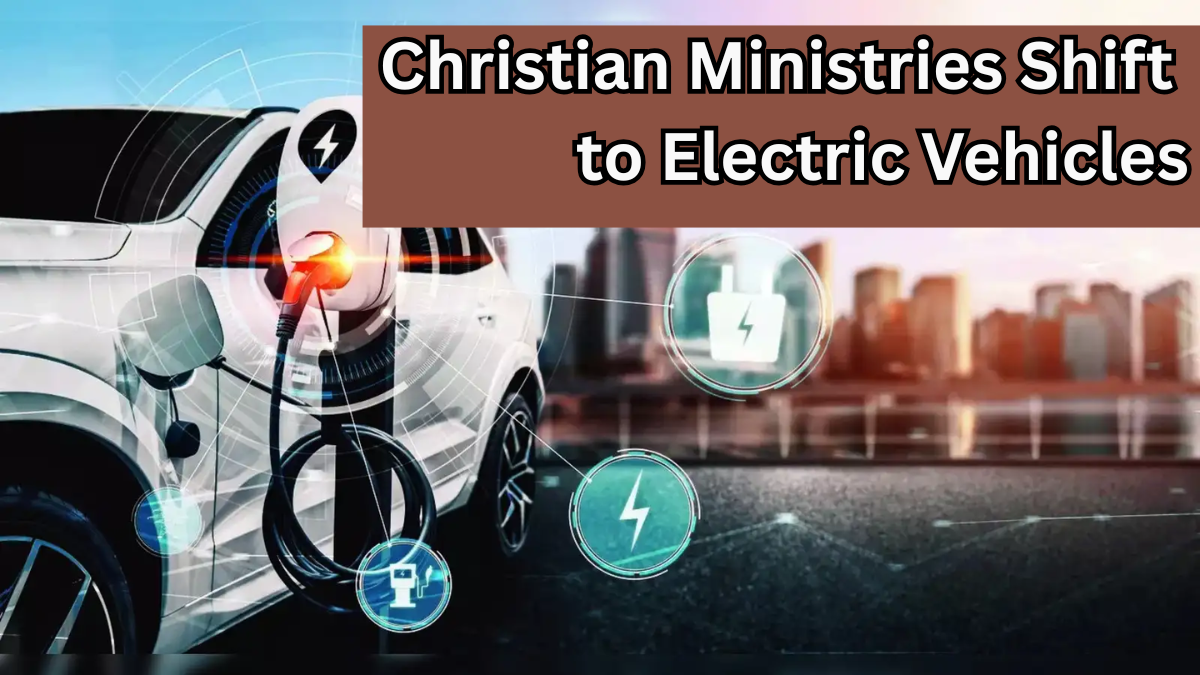Faith-driven organizations have always been at the forefront of social change. In 2025, many Christian ministries are stepping into a new chapter of sustainability by embracing electric vehicles (EVs). This movement reflects a growing commitment to environmental stewardship, aligning with both biblical values of caring for creation and modern sustainability goals.

Why Christian Ministries Are Choosing Electric Vehicles
The shift toward church green vehicles is not just about technology—it’s about mission and responsibility. Ministries are realizing that their transportation choices reflect their values.
Key reasons behind the change:
-
Stewardship of Creation – Reducing carbon emissions aligns with Christian values of protecting God’s earth.
-
Long-Term Savings – Lower fuel and maintenance costs benefit ministries operating on tight budgets.
-
Public Witness – Driving EVs demonstrates visible leadership in sustainability within communities.
-
Government Incentives – Tax breaks and subsidies are making the transition more affordable.
Impact of EV Adoption in Christian NGOs
EV adoption in Christian NGOs is creating ripple effects across communities. Ministries that once relied on diesel vans for outreach, food delivery, or mission trips are now switching to EV fleets.
This change is leading to:
-
Inspiration for congregations to adopt eco-friendly practices.
-
Reduced long-term ministry expenses.
-
A strong example for other non-profits and faith-based organizations.
Comparing Traditional Ministry Vehicles vs. Church Green Vehicles
| Aspect | Traditional Vehicles | Church Green Vehicles (EVs) |
|---|---|---|
| Fuel Costs | High, fluctuating | Lower, electricity-based |
| Maintenance | Frequent engine repairs | Fewer parts, less servicing |
| Environmental Impact | High carbon emissions | Zero tailpipe emissions |
| Public Perception | Neutral | Seen as progressive, eco-friendly |
| Long-Term Savings | Limited | Significant over time |
Stories from the Ground
-
Food Pantries: Ministries delivering meals to the needy are now using EV vans to cut fuel costs while serving more families.
-
Youth Ministries: Churches are using electric buses for camps and retreats, making sustainability part of youth engagement.
-
Mission Outreach: EVs allow pastors and volunteers to travel longer distances with reduced expenses, freeing up funds for community service.
The Road Ahead for Ministries and EVs
The future of EV adoption in Christian NGOs looks promising. With increased support from governments, automakers, and eco-conscious donors, more ministries are expected to follow suit. For churches, embracing church green vehicles is more than just a practical decision—it’s a spiritual one, rooted in the belief that caring for the environment is part of their calling.
FAQs
Q1. Why are Christian ministries shifting to electric vehicles in 2025?
A1. Ministries see EVs as a way to reduce costs, align with biblical stewardship, and set an example of sustainability in their communities.
Q2. How does EV adoption in Christian NGOs benefit congregations?
A2. It inspires members to embrace eco-friendly lifestyles, reduces financial pressure on ministries, and enhances the organization’s public image.
Q3. Are church green vehicles affordable for small ministries?
A3. Yes. With subsidies, donations, and long-term savings on fuel and maintenance, even smaller ministries can benefit from making the switch.
Q4. What types of EVs are ministries using?
A4. From vans for food delivery, to electric buses for youth programs, and even compact EVs for pastoral visits—ministries are choosing vehicles that fit their mission needs.
Click here to learn more
